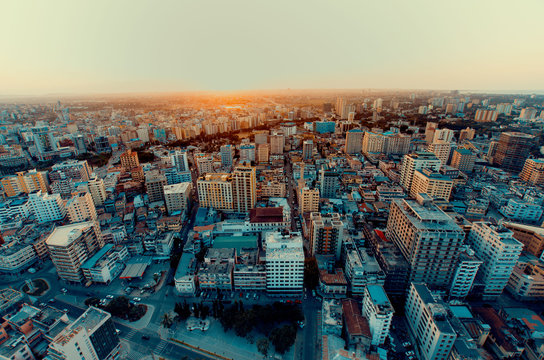With its rich natural resources and growing economy, Tanzania has become an attractive destination for foreign investors. However, it is essential to understand the intricacies of land ownership in the country before embarking on any investment projects.
In Tanzania, all land is considered public property, entrusted to the President of the United Republic of Tanzania on behalf of its citizens. This means that land ownership, whether by citizens or foreigners, is through a leasehold system.
General Land: This category includes all public land not declared as reserved or village land. It constitutes around 2% of Tanzania’s land, mainly used for urban purposes and supporting approximately 20% of the population.
The Commissioner for Land manages general land, and any Tanzanian citizen (individual or corporate) may be granted the Right of Occupancy for designated use. On the other hand, foreign investors can obtain the derivative right of occupancy for investment activities through the Tanzania Investment Center (TIC).
Village Land: Village land comprises land within the boundaries of registered villages under the Local Government (District Authorities) Act and land designated as village land under the Land Tenure (Village Settlement) Act 1965. It also includes land villagers have regularly occupied and used as village land for at least twelve years before 1999.
Village land constitutes about 70% of Tanzania’s land, supporting 80% of its population. The administration and management of village land are vested in local government organs such as the Village Council, the Village Assembly, and the Land Adjudication Committee. Occupiers are granted Customary Right of Occupancy.
Foreign investors can acquire village land by purchasing it from the villagers or the Village Council, after which the land is changed from village land to general land through a registration process facilitated by the TIC.
Reserved Land: Reserved land is set aside for various purposes, including conservation, national parks, marine parks, urban planning, road reserves, public recreation grounds, and public utilities. Forests, national parks, and game reserves comprise about 28% of the total reserved land in Tanzania.
The Commissioner for Land has the authority to allocate reserved land. The President of Tanzania can also transfer land between the three categories based on government policies or specific applications from interested parties, including investors.
What are the Land Ownership Processes?
Foreign investors seeking to acquire land in Tanzania have several options, depending on their investment goals and the type of land they wish to receive:
- Granted Right of Occupancy: For general land, Tanzanian citizens and local companies can be given the Right of Occupancy for a term of 33, 66, or 99 years, with the lease period renewable. Foreign investors may also be issued the Granted Right of Occupancy provided they are a company with local shareholders retaining 51% of the shares. However, a body corporate registered in Tanzania with non-citizen majority shareholders is considered a foreign company.
- Customary Right of Occupancy: Under the Village Land Act, the Village Land Council issues the Customary Right of Occupancy for land already occupied by villagers. Foreign investors can acquire village land by purchasing it from the owners or the Village Council and then changing it to general land through the TIC.
- Derivative Right of Occupancy: Foreign investors can obtain a Derivative Right of Occupancy from the TIC for investment purposes, granting them the right to occupy and use the land for a specific period. The length of the derivative right is usually ten days less than the term of the Granted Right of Occupancy for which it is derived.
Also read: Tanzania Investment Centre Aims High, Eyeing $5 Billion in Annual Investment Projects.
Acquiring land in Tanzania involves several steps, especially when dealing with village land. Foreign investors are advised to seek an attorney’s assistance to navigate the process’s complexities. The acquisition can be done through the TIC for general land or the local government for village land.
The TIC can provide a list of available land, and the local government will identify and facilitate the purchase of village land. It is essential to note that converting village land to general land can take considerable time, around a year or more.
However, the investor can occupy and use the ground during this period. The process of granting the derivative right of occupancy to investors with land already registered under the TIC is relatively faster, typically taking 3 to 4 months.
Foreign investors also have additional options to acquire land for investment purposes in Tanzania:
- Long Lease Arrangement: Investors can sign an extended lease agreement with local landowners, allowing them to use the land for most of the term of the right of occupancy.
- Joint Company Registration: By registering a company jointly with Tanzanian shareholders and allowing them to retain 51% of the shares, the company can be considered a local company and acquire land accordingly.
There is a wide range of opinions based on this system of land ownership. There have been calls from various stakeholders for more transparent and fair land allocation and registration processes. Some individuals and organizations advocate for greater community involvement and consultation in land decisions to ensure that the rights of local people are protected and respected.
The Tanzanian government has reformed land laws and policies to address historical injustices, improve land tenure security, and promote sustainable land management. These reforms balance individual, communal, and investor rights while ensuring social justice and economic development. But even with the reforms, most concerns remain pressing.


Not fair